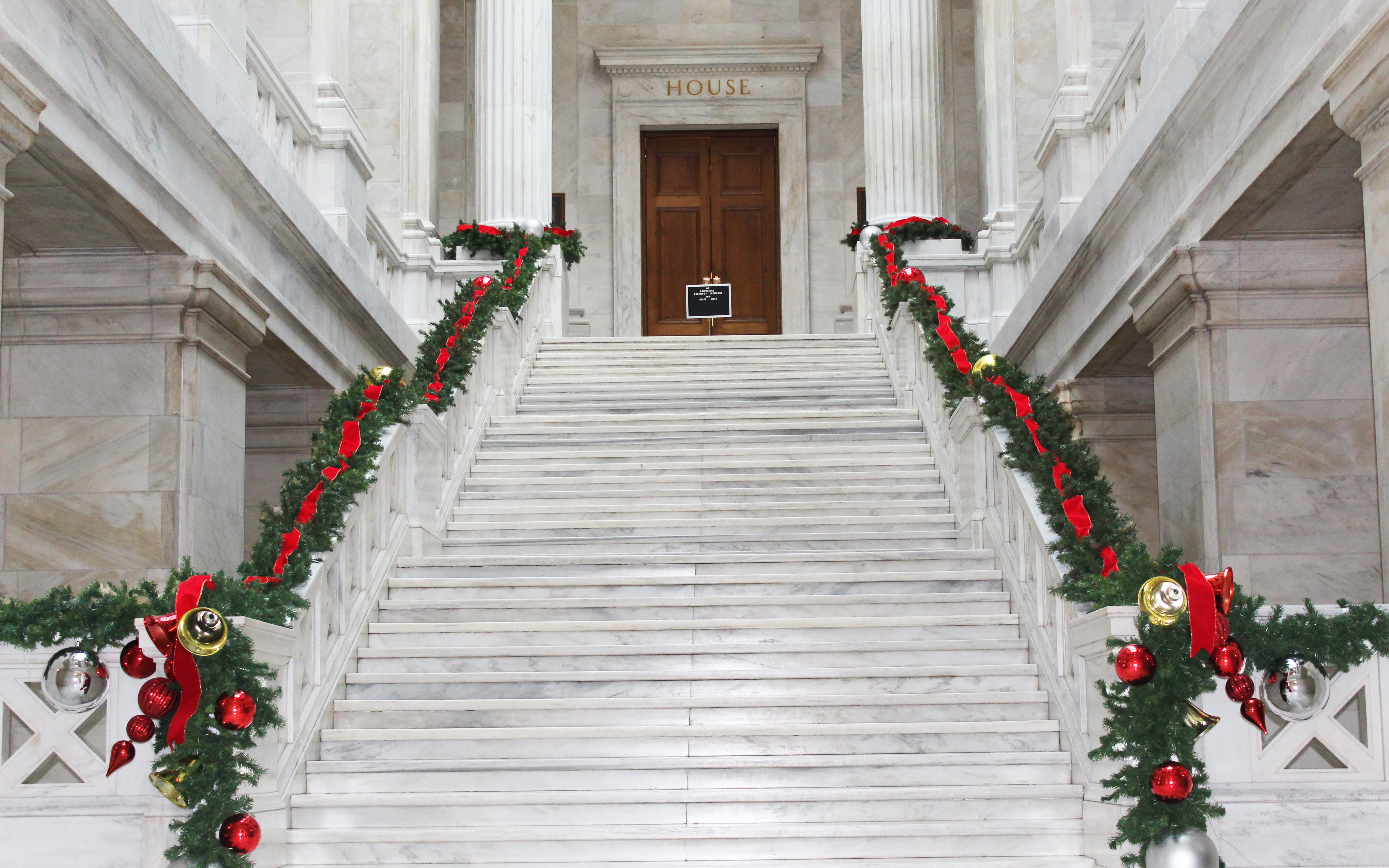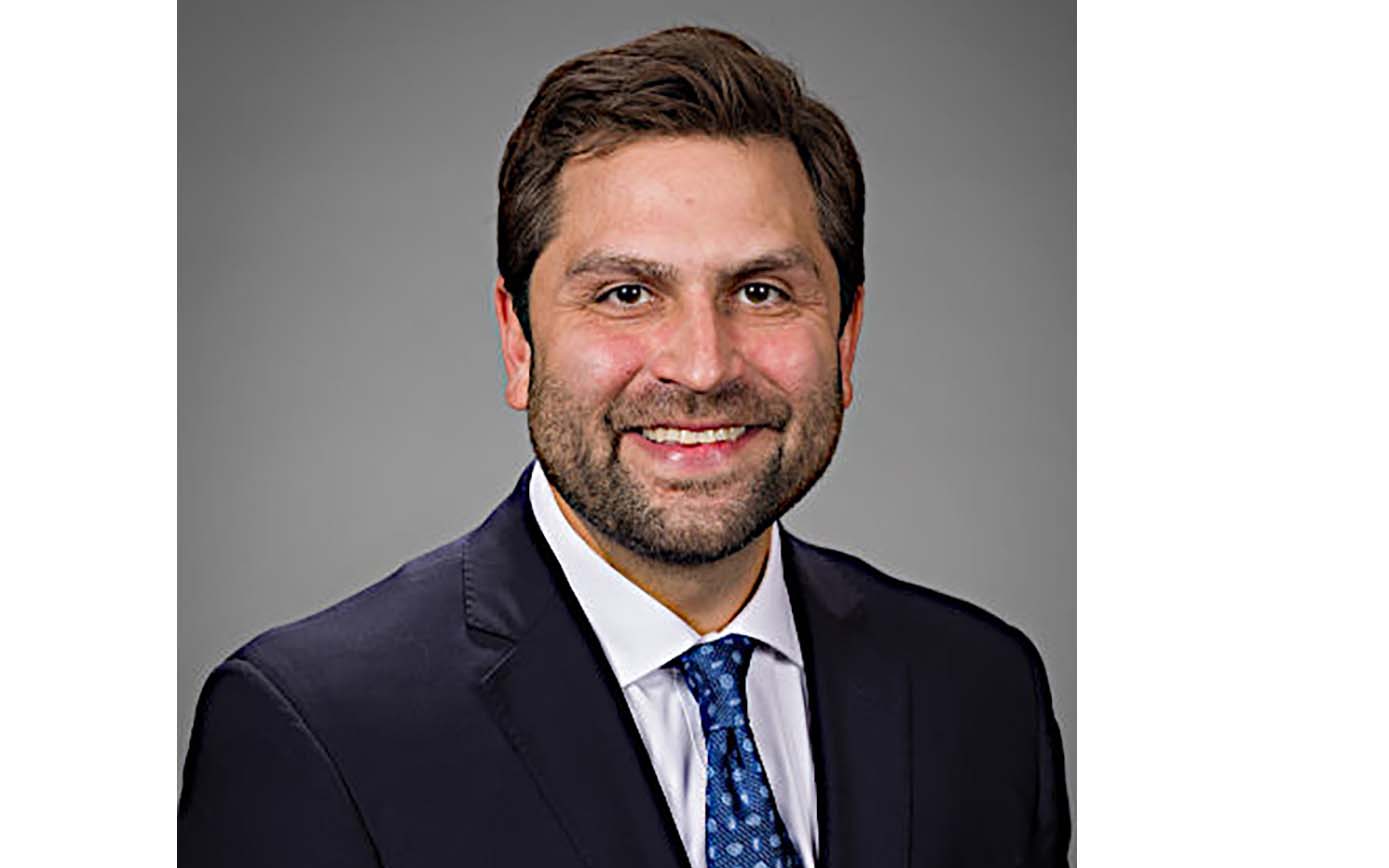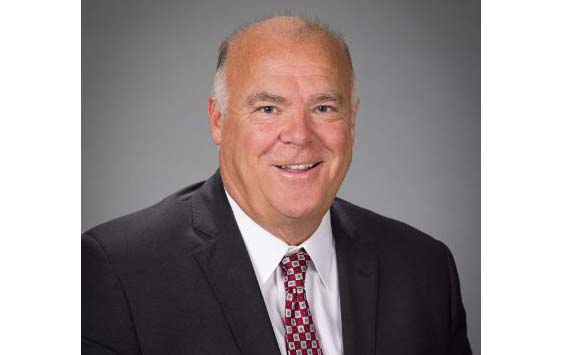Gov. Asa Hutchinson calls holiday special session to enact nearly $500 million in state income tax cuts
December 13-19, 2021
By Dwain Hebda
Talking to Joe Jett, a three-term representative from Arkansas’ District 56, you’d expect someone more ebullient given the festive time of year.
After all, he’s leading the charge in the Arkansas House of Representatives to deliver an early Christmas present to Arkansas taxpayers in the form of income tax cuts across the board. At last count, he’s got solid support for his proposal in the House, as well as over in the Senate. He’s got an ally in Gov. Asa Hutchinson, who called a Dec. 7 special session to address the matter. And he’s got a $1.2 billion surplus straining state coffers that puts timing on his side.
Still, Jett is a farmer and any good farmer knows not to count a yield until it’s in the silo. The Republican tax hawk and two-term chairman of the influential House Revenue and Taxation Committee has been around a while and said he’s not taking any victory laps just yet. After all, the measure was supposed to pass during the spring legislative session, but a spike in COVID variants shelved it until now.
“I’ve been in politics long enough now to know. Nothing really surprises me,” he said. “We came out of the regular session back in March and April and we had all this COVID relief stimulus money flowing through the economy. Nobody really knew how much money was out there and how much money was going to be left over after the session, because there were so many uncertainties about COVID and all that’s going on in the state, especially with the economy.”
“We did do about $200 million worth of tax cuts back during the regular session, but it wasn’t income tax cuts. So, leadership got together and decided we’d defer any tax cut talks until a special session later this fall which has now rolled into this winter.”
Again, this go around the measure appears to be a slam dunk. Leadership in both houses acknowledge comfortable levels of support for the proposed reduction in the state’s top income tax rate from 5.9% to ultimately 4.9%, saving taxpayers $135 million the first year and reducing the tax burden by nearly $500 million when fully implemented in 2026.
Jett, however, notes potentially derailing distractions are already presenting themselves, including issues dividing lawmakers’ focus, negative press drummed up by the opposition and even the onset of the Omicron variant. Each of which, he said, could trip tax relief at the finish line.
“This whole special session from Day One, was born out of a need to do this task back from the first general assembly,” he said. “But like this new [COVID] variant that has just now got on the radar and if it’s something we need to take care of, I’ll claim my right to say, ‘Let me back up on what I just said.’”
As of Dec. 1, Hutchinson’s agenda items besides the income tax legislation included bills addressing insulin rebates, additional appropriations for state agencies and economic development measures, among others. The governor did not include any abortion law changes on the slate, despite pressure from conservative lawmakers led by Sen. Jason Rapert, R-Conway, to do so.
Jett said he’s not in favor of adding anything to the legislative agenda beyond what the governor deems necessary. That process, known as expanding the call, requires a two-third majority vote.
“I can only speak for myself, but I’ll just say that I will not be voting for anything to expand the call unless it is a true emergency,” Jett said. “I feel like we’re wasting taxpayer dollars, because it costs money every day that we’re down there. You’ve got 135 of us and staff down there every day, on per diem. It costs the taxpayers of Arkansas too much money for us to be playing games.”
Meanwhile, opponents of the measure have been working overtime, claiming the proposal is merely a stocking stuffer for the rich and corporate citizenry. On Nov. 30, a letter signed by 16 nonprofits was sent to lawmakers by the Arkansas Advocates for Children and Families. In it, the group questioned the wisdom of cutting state income when so many social problems, health disparities and other issues remain unresolved and underfunded.
“The budget surplus has been built up because, for too many years, the state government has chosen to underfund or not to fund critical investments that would benefit all Arkansans, from toddlers in preschool to the elderly in our nursing homes,” the letter reads.
“We should make investments in things that have big payoffs for our communities and draw people to our state, like great schools, strong infrastructure, a high-quality health care system, and targeted investments in our struggling rural communities.”
Syard Evans, executive director for the Arkansas Support Network, said the idea of tax reductions demonstrates a misguided sense of priorities.
“Our reimbursement rates are notoriously low and have been, historically,” she said. “The pandemic has absolutely taken what was already a very volatile situation for us and created essentially a workforce that’s crumbling out from underneath us.”
ASN, a home- and community-based developmental disability service provider, serves Arkansans who have been assessed to need institutional-level care with services that allow them to live in the community instead of an institution. Evans estimated ASN supports around 500 to 550 individuals statewide through various programs via the Medicaid waiver program, vocational services and other programs. It also serves about 3,000 people and families in total through direct services, advocacy and educational initiatives.
The organization currently employs 850 statewide, but Evans said that number should be closer to 1,000, workers she cannot attract due to an inability to compete with the private sector. She fears money taken off the tax rolls will only make matters worse, further reducing the reimbursements that make up about 90 percent of her $33 million budget through Medicaid dollars and similar structures.
Aside from all this, Evans called the specific proposal bad public policy. Asked why she’d oppose something that proposes to put more money back into the pockets of the very population she’s serving, she echoed an oft-heard refrain that the proposals disproportionately favor the wealthy, not her constituents.
“The top 20% of Arkansans will get 75% of the benefit of these tax cuts. The bottom one percent of Arkansans, the service population that we work with, will experience about an $18 benefit from it,” she said. “Any measure that’s going to take half a billion dollars out of the state’s economy and give it back to the top 20 percent, we really believe that that money could be better spent in shoring up this service system that is vitally necessary for so many Arkansans.”
Jett said such arguments are misleading because they focus on dollars and not percentages.
“We worked hard making sure that everybody was going to get their fair share. As you start working your way up through the tax code, everybody is getting anywhere from an 8 to 12 percent cut. So, it’s the fairest cut across the board,” he said. “Now, somebody said a $60 tax cut is not very much. I understand that, but when your tax liability is $500, you’re still getting a 12% cut. It’s all relative. I don’t know how you can make it any fairer than that.”
Jett also said many of the most vocal critics of the plan are the very ones doing the least to get clarity or engage in meaningful debate.
“There’s a lot of special interest groups out there that are protecting the base, the hand that feeds them,” he said. “They’re all about keeping people stirred up, that way they get their donations to keep operating. I’m not going to say people are out-and-out lying, but I would say a lot of folks just use talking points and they’re not really taking time to understand things.
“I know who’s asked for the bill and who’s not. These folks out there crying the most on the far left and far right can pick up the phone and give me a call. I’m pretty easy to find. Yet not one of those groups has taken the time to give me a call or ask me for a summary of the bill or have this type of discussion.”
Sen. Jonathan Dismang, R-Beebe, goes further, saying the new proposal is not only fair, but it reaches populations in the state that have been left out of previous legislation.
“We’ve got the most complicated tax structure in the country. If you ask the question why is that, it’s because we’ve left certain populations out of past tax cuts,” he said. “The reason we had multiple tables was to be able to control expenses and the reality is, there was a large number of people that were right there on the borderline of the tables. So, when we combine those two lower tables, we’re providing significant relief to middle-income working families here in the state.”
“If you look at the bill and then look at the numbers, it’s actually very balanced between tax cuts for what you would call working middle class folks and higher income earners and job creators.”
Dismang also said the potential positive impact on the state’s economy that a lower income tax structure would bring cannot be overstated or discounted from the discussion.
“We want more job creators in the state of Arkansas,” he said. “That’s a goal and we’re willing to incentivize that over and over again. We need to incentivize it through our tax code.”
Asked for his prediction on whether the bill passes during the special session, Dismang didn’t even blink.
“Yes, absolutely,” he said.
PHOTOS:
Early Christmas or bah humbug? Tax cut hawks look to give Arkansas taxpayers early Christmas gift. Gov. Asa Hutchinson’s tax cut proposal looks to lower the top tax rate for individuals from 5.9% to 4.9% over the next four years.







